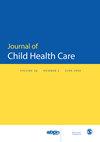与患有慢性病的青少年医疗保健过渡准备相关的因素:横断面研究
IF 1.3
4区 医学
Q3 NURSING
引用次数: 0
摘要
医疗保健过渡准备(HCTR)在促进自主性、自我管理技能和积极参与医疗保健方面发挥着至关重要的作用,从而带来积极的健康结果。本研究旨在探讨与慢性病青少年(ACCs)医疗保健过渡准备相关的因素,包括青少年的自主性、父母的过度保护以及医疗保健提供者(HCPs)对青少年自主性的支持。这项描述性研究纳入了 107 名 14-19 岁的青少年(中位年龄:17 岁,IQR = 1),他们是从韩国的在线社区和支持团体中招募的。数据采用分层线性回归法进行分析。我们的研究表明,HCTR 与较低水平的父母过度保护(β = -0.46,95% CI [-0.59,-0.33])和较高水平的 HCP 自主支持(β = 0.46,95% CI [0.36,0.56])有关。在一般特征中,我们还发现拥有转入成人护理计划(β = 0.24,95% CI [0.04,0.44])与 HCTR 显著相关。本研究通过考察 ACC 中的相关因素,加深了对 HCTR 的理解。研究结果强调了父母的参与、医疗保健提供者的支持以及向成人护理的有序过渡在提高 HCTR 方面的关键作用。这些研究结果突出表明,有必要提供全面的帮助,以确保成功的医疗保健过渡。本文章由计算机程序翻译,如有差异,请以英文原文为准。
Factors associated with healthcare transition readiness for adolescents with chronic conditions: A cross-sectional study
Healthcare transition readiness (HCTR) plays a vital role by fostering autonomy, self-management skills, and active involvement in healthcare, leading to positive health outcomes. This study aimed to examine the factors associated with HCTR in adolescents with chronic conditions (ACCs) including adolescents’ autonomy, parental overprotection, and autonomy support from healthcare providers (HCPs). This descriptive study included 107 adolescents aged 14–19 years (median age: 17 years, IQR = 1), recruited from online communities and support groups in South Korea. Data were analyzed using hierarchical linear regression. Our research has shown that HCTR is linked to a lower level of parental overprotection (β = −0.46, 95% CI [−0.59, −0.33]) and higher levels of autonomy support from HCPs (β = 0.46, 95% CI [0.36, 0.56]). Among general characteristics, we also found that having a transfer plan to adult care (β = 0.24, 95% CI [0.04, 0.44]) is significantly associated with HCTR. This study contributes to a broader understanding of HCTR by examining its associated factors in ACC. The results emphasize the pivotal roles of parental involvement, healthcare provider support, and structured transition to adult care in enhancing HCTR. These findings underscore the need for comprehensive assistance to ensure successful healthcare transitions.
求助全文
通过发布文献求助,成功后即可免费获取论文全文。
去求助
来源期刊

Journal of Child Health Care
NURSING-PEDIATRICS
CiteScore
4.10
自引率
15.80%
发文量
60
审稿时长
>12 weeks
期刊介绍:
Journal of Child Health Care is a broad ranging, international, professionally-oriented, interdisciplinary and peer reviewed journal. It focuses on issues related to the health and health care of neonates, children, young people and their families, including areas such as illness, disability, complex needs, well-being, quality of life and mental health care in a diverse range of settings. The Journal of Child Health Care publishes original theoretical, empirical and review papers which have application to a wide variety of disciplines.
 求助内容:
求助内容: 应助结果提醒方式:
应助结果提醒方式:


